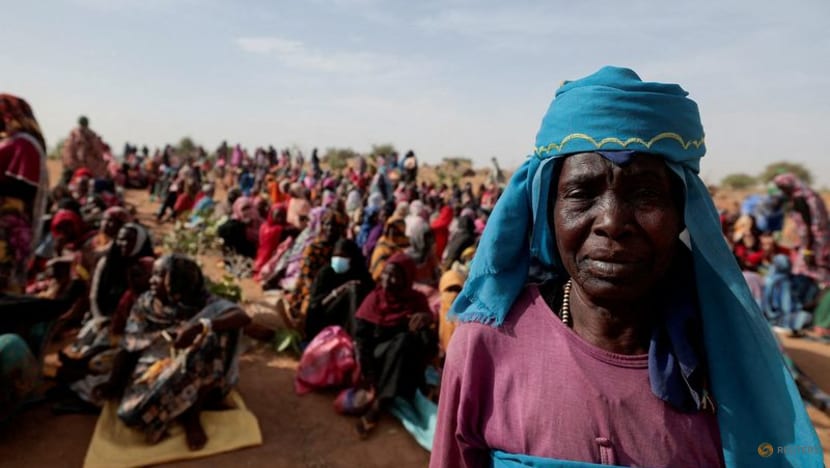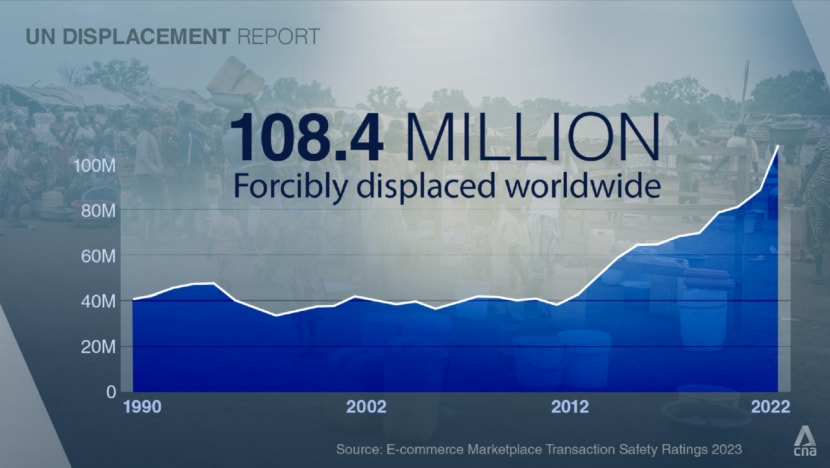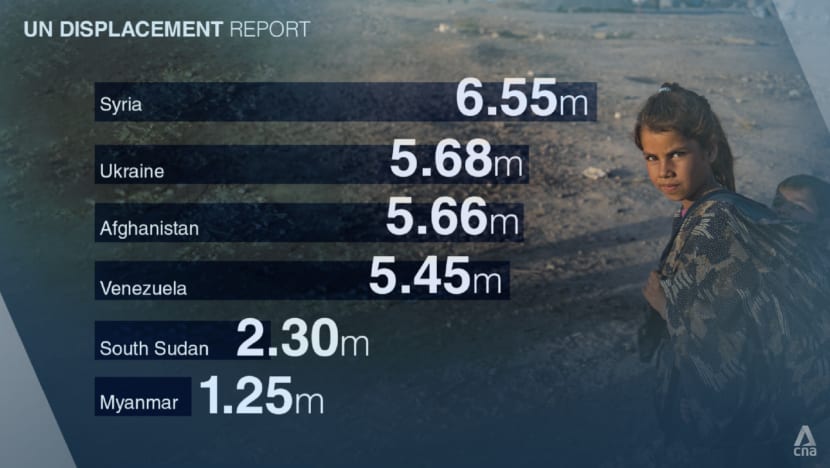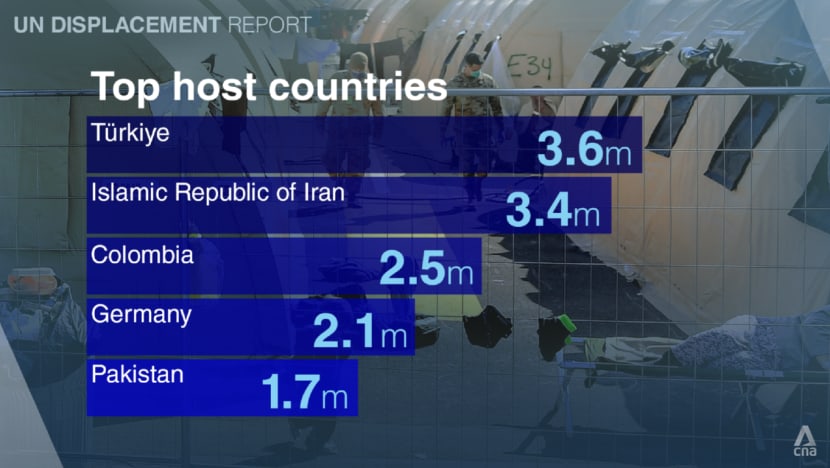World’s refugees number hit another record high, with most hosted in middle- and low-income nations: UNHCR
More than 1 in every 74 people in the world have been forced to flee from home, statistics showed.

The number of forcibly displaced people worldwide has risen to another fresh high as conflicts, including those in Ukraine and Sudan, continue to inflict suffering on communities.
A report by the United Nations High Commissioner for Refugees (UNHCR) showed that there were 108.4 million displaced individuals at the end of last year, up 19 million from 2021.
This means more than 1 in every 74 people in the world have been forced to flee from home, according to the Global Trends report released this month.
The figure represents the largest annual jump on record at 21 per cent. Numbers have been rising for 11 years straight.
Children make up 40 per cent of total displaced individuals.

Middle- and low-income countries host a disproportionately large share of the world’s displaced people, at 76 per cent, the statistics showed.
Countries hosting the most refugees are Turkiye, Iran, Colombia, Germany and Pakistan.
UNHCR’s head of news and media Matthew Saltmarsh told CNA that the number of people displaced is “very stark” and highlights an increasingly acute situation.
In recent months, the number of those fleeing their homes has surged yet again, and is estimated to have surpassed 110 million, largely due to the war in Sudan, said the agency.
The eruption of armed conflict within Sudan’s military leadership in April has plunged the country into a dire humanitarian crisis, with more than 1 million displaced.
COUNTRIES IN CRISIS
About 52 per cent of all refugees and others in need of international protection came from just three nations.
Syria, which has been embroiled in a civil war for 12 years, topped the list with 6.5 million, accounting for almost one in five refugees globally.
Russia’s invasion of Ukraine in February last year triggered the fastest displacement crisis in Europe since World War II, forcing 5.7 million Ukrainians to flee their country.
Decades of conflict and instability in Afghanistan, as well as the Taliban’s takeover in 2021, have driven 5.7 million to leave the nation.

Other counties with a large number of displaced people include Venezuela, South Sudan, the Democratic Republic of Congo, Somalia and Yemen.
Within Southeast Asia, the most number of displaced people were from Myanmar at 1.25 million, amid continued violence following its military coup in 2021.
The UN refugee agency’s chief Filippo Grandi said people have fled not only conflict, but also persecution, discrimination and violence.
The report showed that most fleeing for safety often aim for the nearest safe place, usually elsewhere in the country or across the immediate border.
Some 70 per cent of refugees live in neighbouring nations.
“Fundamentally, the vast majority of them want to go home, and they want to rebuild their lives at home,” said Mr Saltmarsh.
Last year, 6 million displaced people returned to their country or area of origin, while 114,300 were resettled, mostly in Canada, the United States, and Australia.

APPEAL FOR AID AND PEACE
Mr Saltmarsh appealed for a multi-faceted approach to dealing with the phenomenon, calling on nations and organisations to work on peace efforts and step up humanitarian aid.
“The international community and powers need to make a huge effort to try to create peace, to try to get sides that are fighting to lay down their arms, so as to create the conditions in which people are able to return to their homes,” he told CNA’s Asia Tonight on Thursday (Jun 15).
Immediate needs, however, are resources to aid those already displaced, he said.
He added that while each exodus is driven by different factors, the needs for displaced individuals remain starkly similar – they lack food, water, shelter, medical supplies and livelihoods.
“Countries and (organisations) need to come together to try to support refugees so that they can integrate and feel included, get work, housing and access to healthcare, and become contributing members of society with a brighter future,” he said.
He cautioned the spike in refugees is increasingly being met with a more hostile environment such as backlash and xenophobia, and urges nations to keep international channels open.
The report came ahead of World Refugee Day on June 20, which calls for empathy and to treat refugees with dignity.
The day also celebrates the contributions refugees have brought to their host countries, despite their adversities.
“Looking back at the COVID-19 pandemic, there were so many examples of refugees stepping up and working on the frontlines in many countries in health, transport, and other essential services,” said Mr Saltmarsh.
“Hopefully, at some point in the future, the movement of refugees will decline significantly if the conditions across the world allow for that.”

















